Administrators and managers ready for De Staart!
99 times out of 100, area development still results in additional climate taskings. ‘This needs to be reduced to 1 in 100,’ says Special Envoy for International Water Affairs Henk Ovink in his closing words to the “Ready for De Staart” debate. According to Mr Ovink, the results of the IABR Atelier Dordrecht show that this is feasible and what societal value it will generate. In this Atelier, the flood protection tasking was used as leverage for sustainable urban development. The Atelier explored how the construction of the De Staart peninsula as a large-scale flood shelter can concurrently boost the development of this area. In the debate held on 2 July, administrators and managers from the region discussed the results of the study.
The debate took place in the Biesboschhal centre in Dordrecht, which is housing the High Ground exposition from 3 July until 14 August. The debate commenced with introductions by Alderman Piet Sleeking, Delta Programme Commissioner Peter Glas, and IABR Director George Brugmans. Subsequently, lead designer Adriaan Geuze (West 8), standing by the large scale model, explained the Atelier results. He showed that De Staart – the elevated floodplains area of the city of Dordrecht, currently an isolated area faced with many problems and slim perspectives – can play an unexpectedly important part in the realisation of the Dordrecht flood protection agenda. Opting for flood risk management as a leverage approach is creating sudden opportunities for the sustainable development of an attractive residential and commercial area – with new types of houses, flood-proof facilities to take shelter during high water, innovative work concepts, and a unique tidal park by the river. Everything in harmony with nature and with new connections for slow traffic that can double as escape routes.
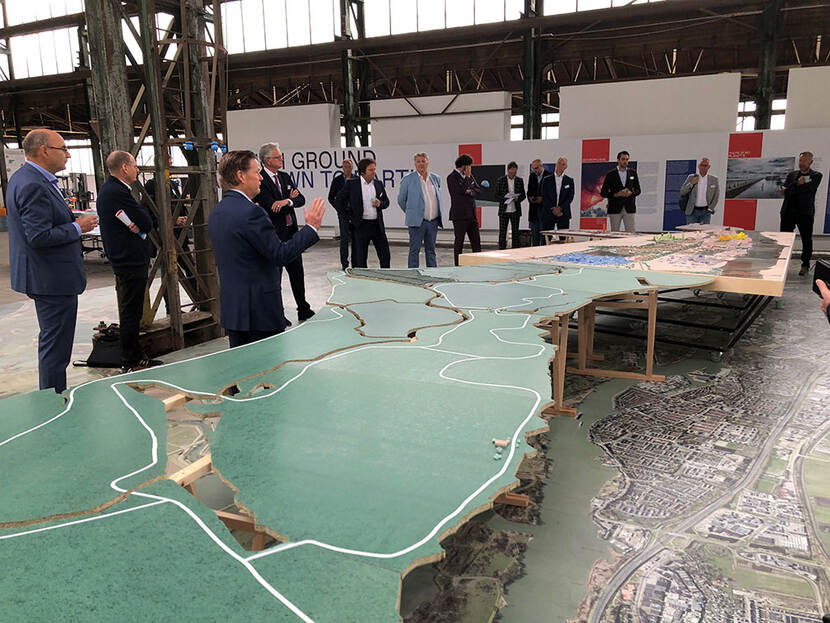
Dreams
The debate was intended to spark a discussion on the future of De Staart and what it will take to achieve this. To this end, the administrators and managers split into two groups. The discussion tables were chaired by Delft University of Technology professors Ellen van Bueren and Chris Zevenbergen. They asked the administrators about their dreams for the area and explored common ground between these dreams. The individual dreams reflected many of the IABR Atelier ideas. According to Jeannette Baljeu, Member of the Zuid-Holland Provincial Executive, her dream was that De Staart would develop into a healthy, green residential and commercial area. Arjan Driesprong, Director of Rijkswaterstaat West-Netherlands South, dreamed about the future of the Wantij stream as a tidal park. In his dream, the Wantij will retain its current functions, such as preserving river water quality. In addition, the stream will gain in significance for residents and leisure activities. According to Alderman Marco Stam, an integrated neighbourhood-level approach can help to explore such significance in collaboration with local residents and businesses.
From ideas to realisation
Jan Bonjer, Chairman of the Hollandse Delta district water board, urged the participants to take their dreams a step further: ‘How do we put good ideas into practice?’ His appeal met with approval from other administrators. They expressed their mutual intention to start by taking small steps, such as a bicycle route doubling as an evacuation route, and to celebrate the realisation of such steps. Commencing on the basis of specific plans – that are well-supported and for which funding is already available – will enable the mobilisation of energy for greater dreams; that was the idea. Delta Programme Commissioner Peter Glas emphasised the importance of actively involving the current residents of De Staart in the plans. He also made a case for involving the Security Region and the Ministry of Defence. ‘In my capacity as Delta Programme Commissioner, I would be most happy to serve as a liaison officer to this end,’ Mr Glas offered. In addition to the wish to already embark on the implementation, the request was tabled to (concurrently) keep a tight check on the long-term goals and to secure sufficient process resources to this end.
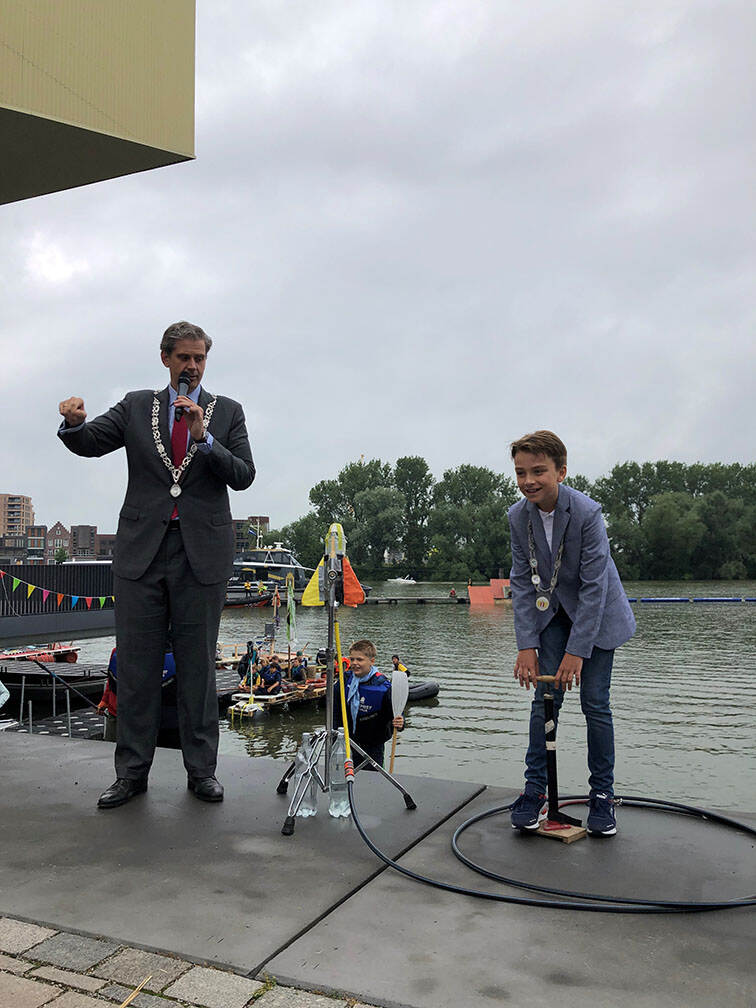
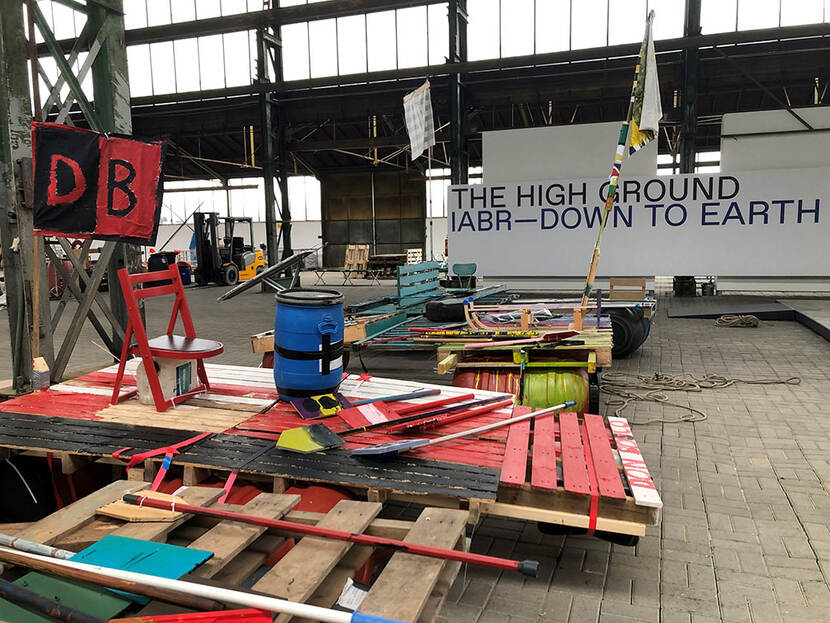
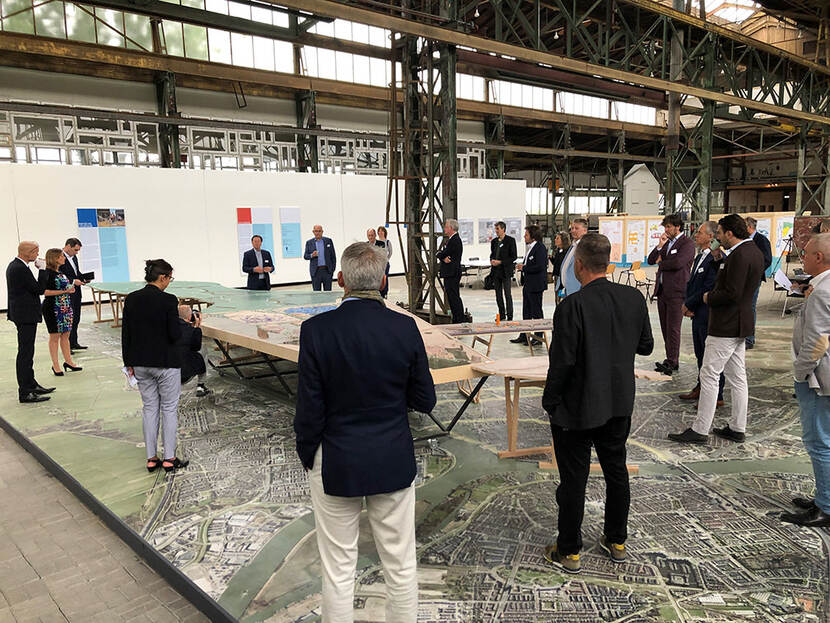
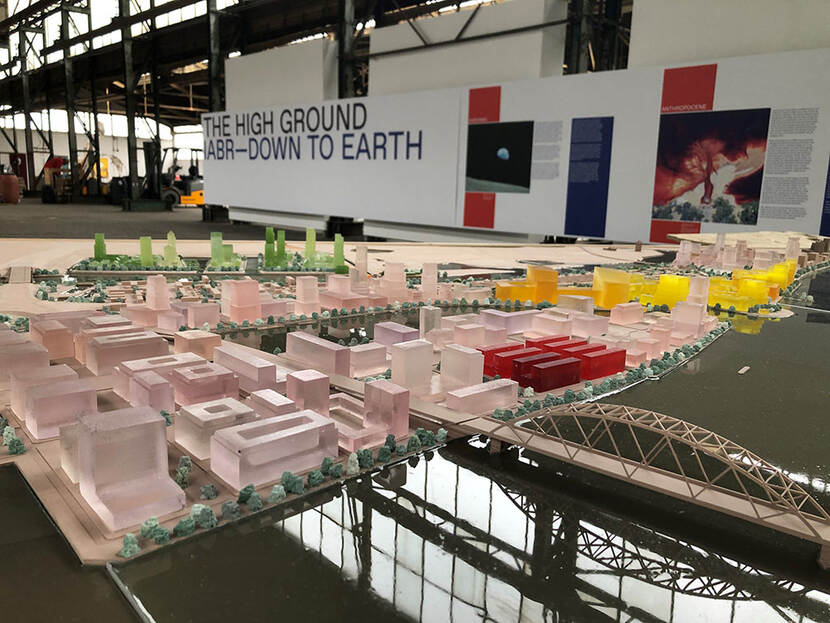
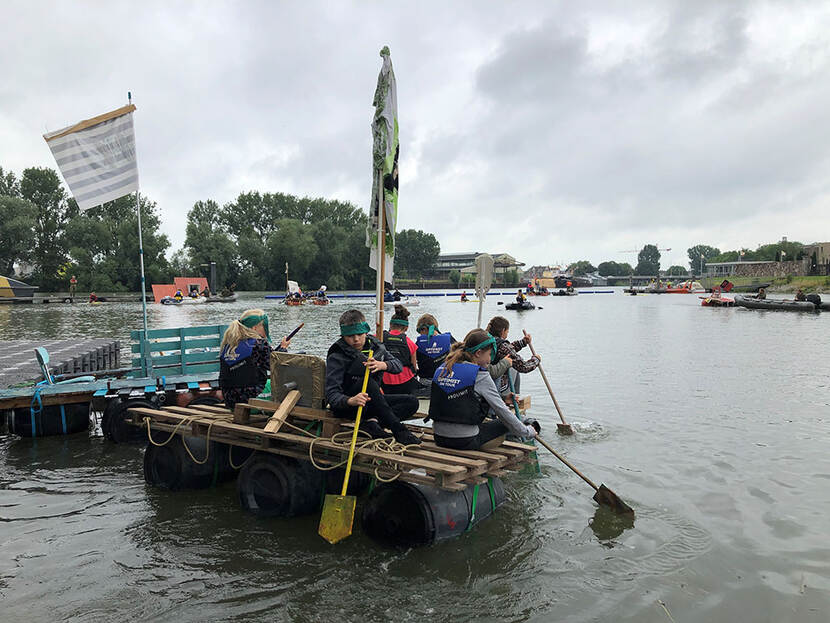
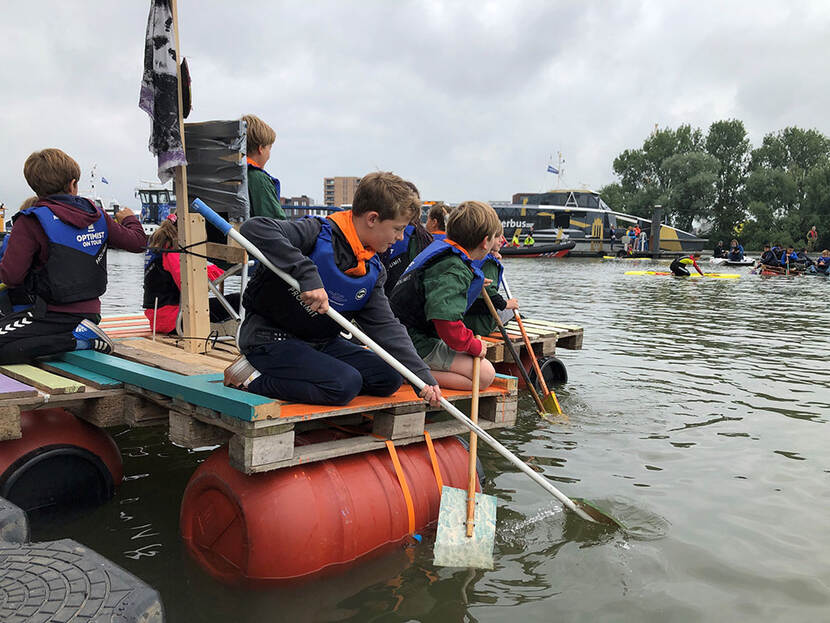
The outcomes of the debate were presented to Alderman Sleeking. ‘I am proud of this exposition and regard it as a wonderful result towards the end of my term as Alderman,’ Mr Sleeking stated. He promised to make an effort, in the months ahead, to take the outcomes further. As a token of appreciation for his commitment to the flood protection of the Rhine Estuary-Drechtsteden region, the Delta Programme Commissioner handed him the book “Johan van Veen, meester van de zee, grondlegger van het Deltaplan” [Johan van Veen, master of the sea, founder of the Delta Plan].
Photos: Jarko van Witte-van Leeuwen